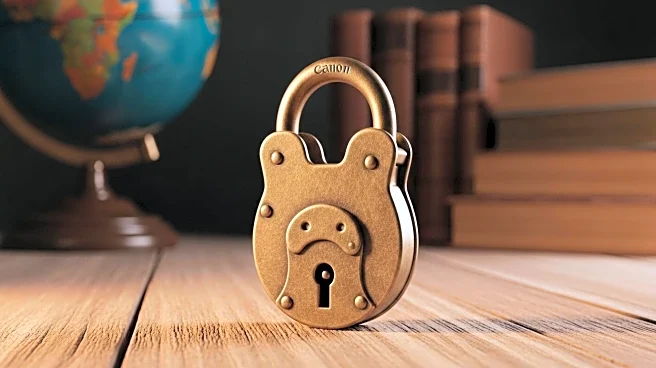What is the story about?
What's Happening?
Reality Winner, a former Air Force veteran and whistleblower, has released a memoir titled 'I am Not Your Enemy.' The book delves into her motivations and experiences surrounding her decision to leak a classified document detailing Russian interference in the 2016 U.S. presidential election. Winner was arrested in 2017 and sentenced to 63 months in prison under the Espionage Act. Her memoir explores themes of government secrecy, media protection of sources, and the application of the Espionage Act to modern cases. Winner reflects on her arrest, the interrogation by FBI agents, and her subsequent incarceration. She discusses her personal struggles, including PTSD from her military service, and critiques the handling of her case compared to other high-profile government leaks.
Why It's Important?
Reality Winner's memoir sheds light on the complexities of whistleblowing and the legal ramifications under the Espionage Act. Her story highlights the challenges faced by individuals who leak information in the interest of public knowledge and the severe consequences they may encounter. The book raises questions about government transparency, the protection of democratic processes, and the treatment of whistleblowers. Winner's narrative may influence public discourse on the balance between national security and the public's right to know, potentially impacting future policy decisions and legal interpretations of the Espionage Act.
What's Next?
The release of Winner's memoir may prompt discussions among policymakers, legal experts, and civil society groups about the need for reforms in how whistleblowers are treated and the application of the Espionage Act. It could lead to increased advocacy for greater protections for individuals who expose government misconduct. Additionally, Winner's insights might inspire other whistleblowers to come forward, potentially leading to more revelations about government activities and influencing public opinion on national security issues.
Beyond the Headlines
Winner's memoir also touches on personal and ethical dimensions, such as her struggles with mental health and the moral implications of her actions. Her story raises broader questions about the psychological impact of military service and the ethical responsibilities of individuals who have access to sensitive information. The book may contribute to ongoing debates about the role of whistleblowers in safeguarding democracy and the ethical considerations involved in leaking classified information.

















